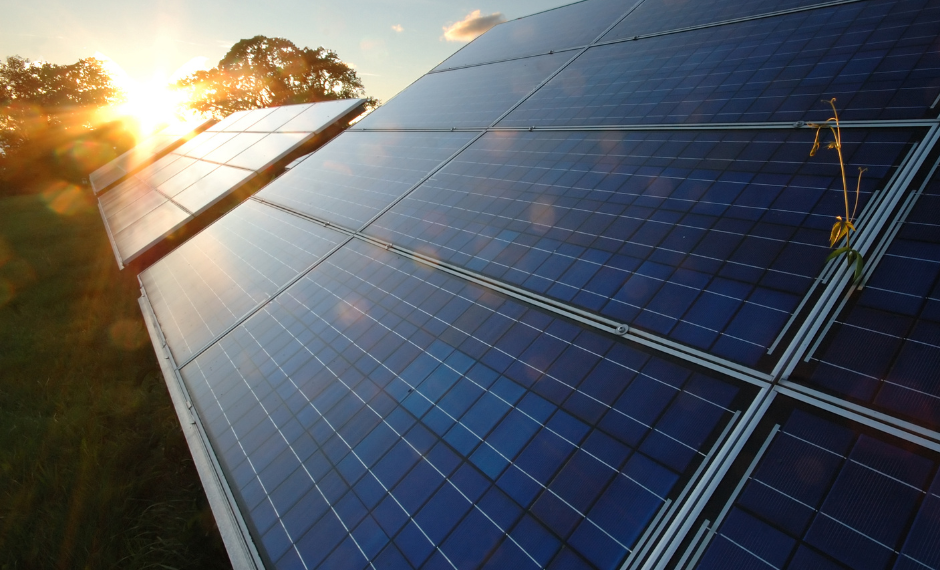Which and how much investment must be made to support clean energy? What is the geographical scale that will lead to a smaller climate dependence? How far is Europe from adopting a policy that does not just consider the interests of individual nations? These are some of the topics that will be addressed at the seventh edition of the INESC TEC Autumn Forum, promoted by the Institute for Systems and Computer Engineering, Technology and Science (INESC TEC). This year, the event focuses on issues related to the energy transition and how the environment, energy, and the economy interconnect. Governments, researchers, and entrepreneurs will discuss technical, regulatory, and environmental solutions to help define public policies that promote the decarbonisation of the economy.
INESC TEC will organise the Autumn Forum for the seventh year, focusing on key topics in today’s agenda, quite relevant due to the outbreak of the war in Ukraine. Focusing on “Accelerating the Decarbonisation of the Economy”, the event will explore climate change issues and the decarbonisation of the economy, namely concerning energy. According to João Peças Lopes, Associate Director of INESC TEC and Professor at the Faculty of Engineering of the University of Porto, said topics are relevant “precisely because of the opportunity and increasing urgency to promote the energy transition, as well as the clear environmental impact at hand and the economic impact that we must mitigate”.
The Forum is also quite relevant by proposing an approach that goes beyond the conventional discussion of ideas, inviting actors from academia and the business ecosystem to reflect on said topics. “The Forum’s complementarity and the debate around energy issues, namely as a lacking resource, and the need to reduce environmental impact, generate tensions that we must address and the need to seek compromise solutions”, mentioned João Peças Lopes.
At a time when climate change is becoming increasingly obvious, namely phenomena like heat waves, prolonged droughts, floods, typhoons, or the melting of polar ice caps, discussing the energy transition helps to create a better understanding of energy challenges. João Peças Lopes also believes that “the Academia and the Scientific and Technological System have great responsibility, not only in the generation of knowledge, but also in the creation of an energy awareness among society and citizens”.
The solutions of the future will be addressed by panels focusing on the challenges and strategies of each segment. Moreover, Peças Lopes believes that we must address “difficult subjects: gas, oil, coal, hydrogen”, because there are many questions that are still unanswered. “Are the deadlines compatible with the urgency of solutions? What type of investment must to be made to support clean energy? What is the geographical scale that will lead to a smaller climate dependence? How far is Europe from adopting a policy that does not just consider the interests of individual nations?
The Forum will bring together experts in Energy and the Environment
Elvira Fortunato, Minister of Science, Technology and Higher Education, will present a macro vision of potential challenges and opportunities in terms of Energy and Climate.
Teresa Pinto Correia, from the University of Évora, will moderate a debate exclusively focused on the Environment, featuring Filipe Duarte Santos (National Council of the Environment and Sustainable Development), Sara Goulartt, (EDP), and João Pedro Gouveia (Nova School of Science and Technology).
João Peças Lopes will moderate the debate around Energy, which will feature Álvaro Costa (FEUP), Pedro Carvalho (INESC – ID and Instituto Superior Técnico), and Pedro Amaral Jorge (Portuguese Renewable Energy Association).
The event will start at 11:00 a.m., with an opening session by Pedro Guedes de Oliveira, former president of INESC Porto and current consultant to INESC TEC’s Board, João Claro, Vice-Chairman of the Board and CEO, and Pedro Rodrigues, Vice-Rector of the University of Porto. Moreover, it will also feature Jorge Vasconcelos, former President of ERSE and President of New Energy Solutions (NEWEs), who will focus on reforming Europe’s electricity markets, and João Pedro Matos Fernandes, former Minister for the Environment and Climate Action and full professor at FEUP, who will present new environmental policies according to the Paris Agreement.
Clara Gouveia, researcher at INESC TEC, Rui Calçada, Director of FEUP, and José Manuel Mendonça, Chairman of the Board of Directors of INESC TEC, will close the event.
The Autumn Forum is an annual initiative promoted by INESC TEC, aiming to promote the discussion of topics relevant to the country. In 2022, the Energy Transition became even more urgent, and it is necessary to evaluate its acceleration, redesigning Energy and Climate Plans and calculating the environmental and economic impact, planning energy security of supply and ensuring high levels of resilience to the energy system.
Therefore, it is important to discuss technical, regulatory, and environmental solutions to help define public policies that promote an approach involving the increasing electrification of society and the economy – supported by improved efficiency in consumption, and increased electricity production from renewable sources.
The event will take place in the auditorium of the Faculty of Engineering of the University of Porto. The full programme is available here. Participation is free, subject to mandatory registration, on the event’s website, until November 29.



 News, current topics, curiosities and so much more about INESC TEC and its community!
News, current topics, curiosities and so much more about INESC TEC and its community!